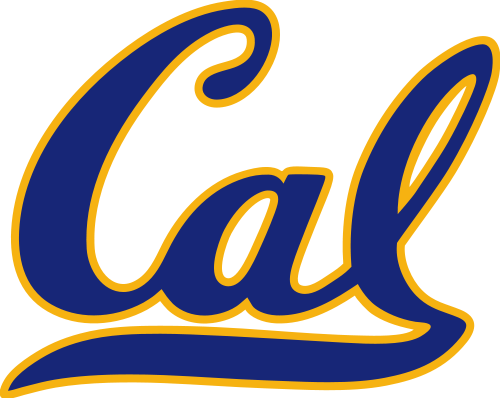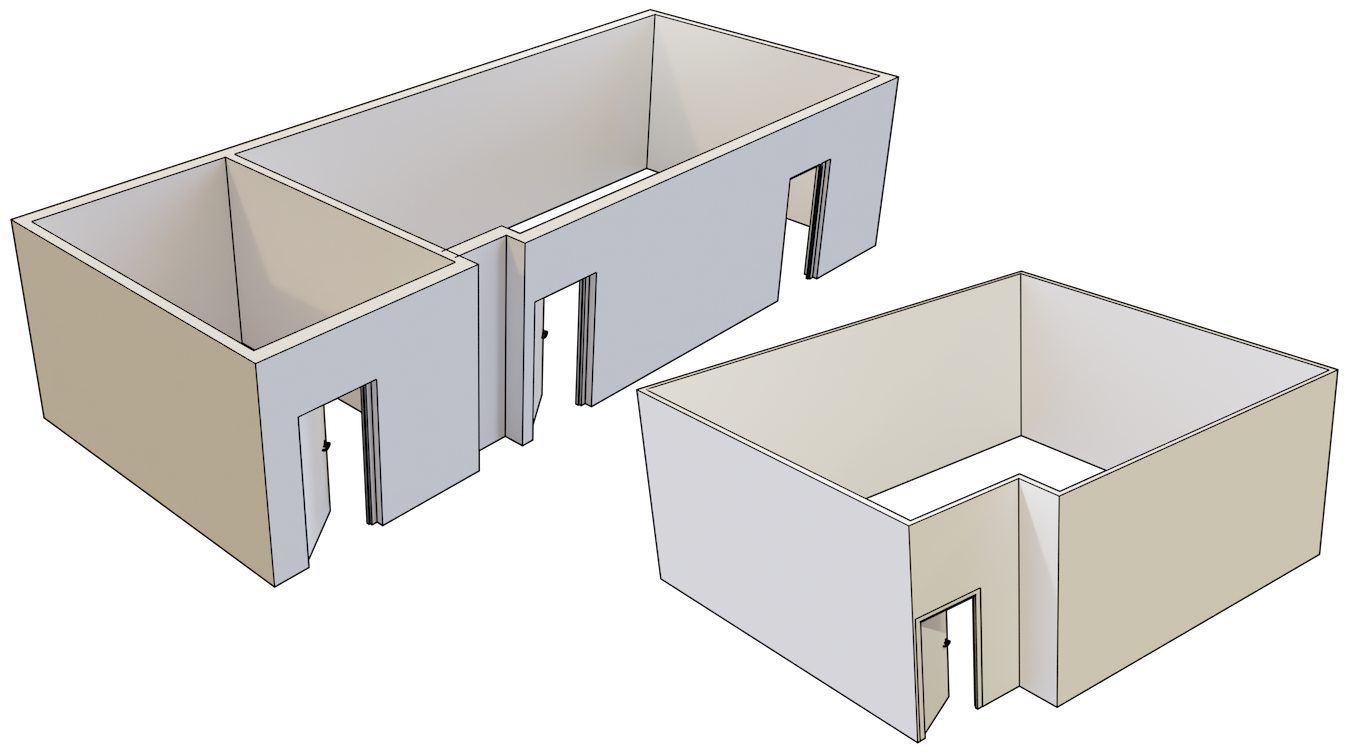Welcome!
We are a lab of scientists and inventors at UC Berkeley working on building hybrid quantum systems with light-matter interfaces to advance quantum technology and probe fundamental science.
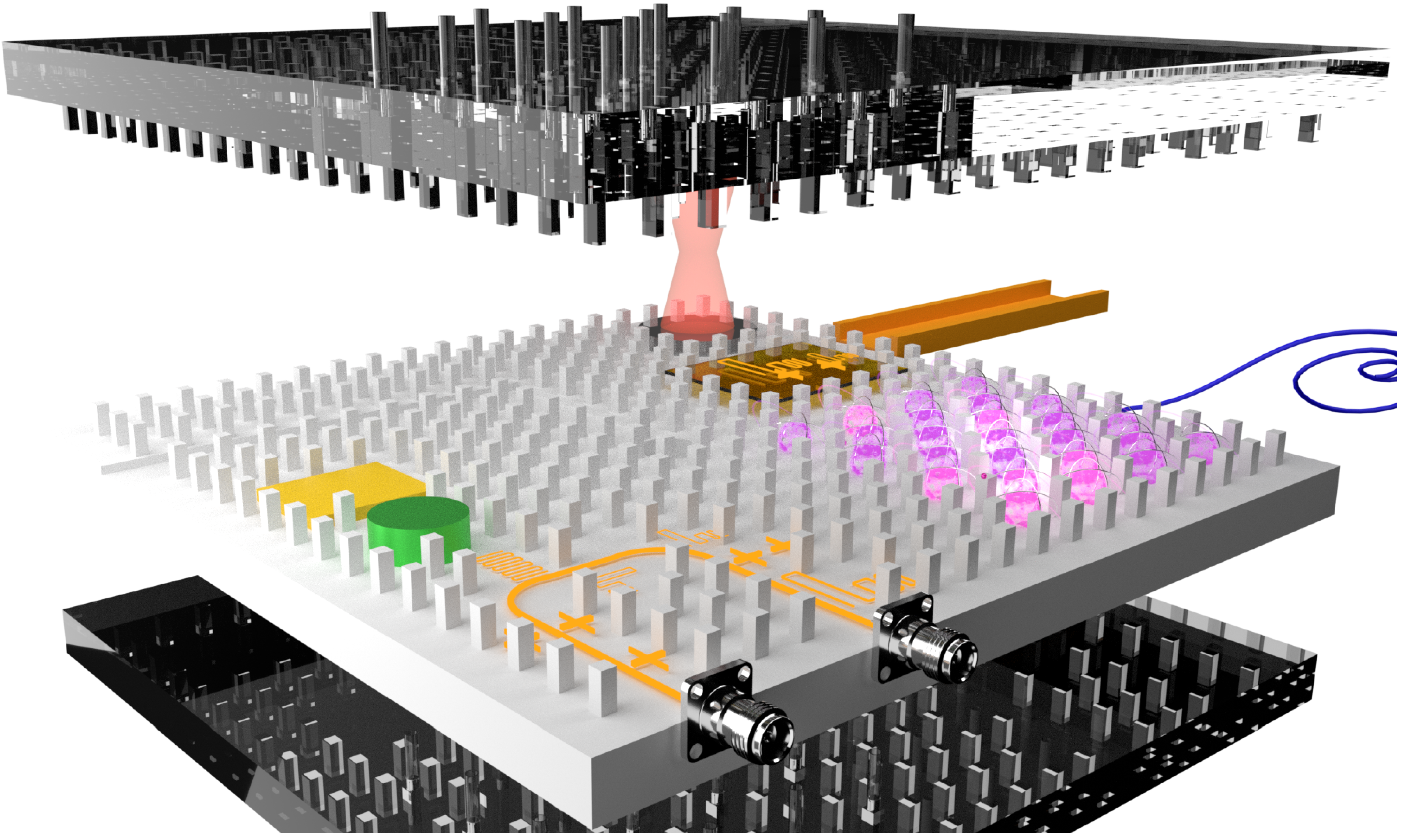
Some of our results from previous research at Harvard and UChicago.
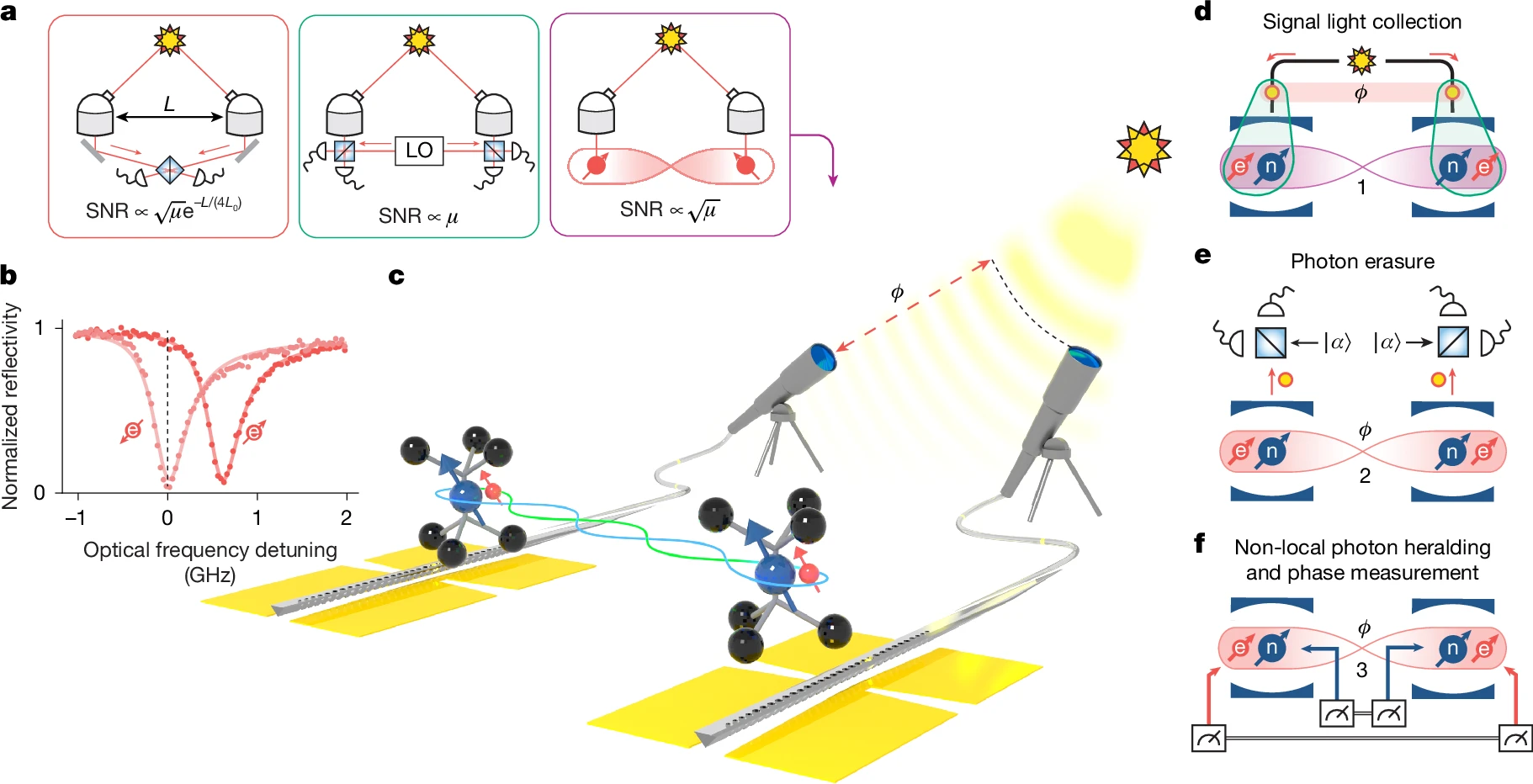
Entanglement-assisted non-local optical interferometry in a quantum network.
We demonstrate how distributed quantum entanglement and quantum memories can enhance the sensitivity of non-local optical measurements — bridging quantum networks, sensing, and computing in a single experiment. Using a two-node quantum network built from Silicon-Vacancy centres in diamond nanophotonic chips, we perform non-local phase measurements of signals at the single-photon level, overcoming fundamental limits of classical interferometry. One exciting application: telescope arrays observing faint astronomical objects could one day benefit from exactly this kind of entanglement-enhanced distributed sensing. Nature
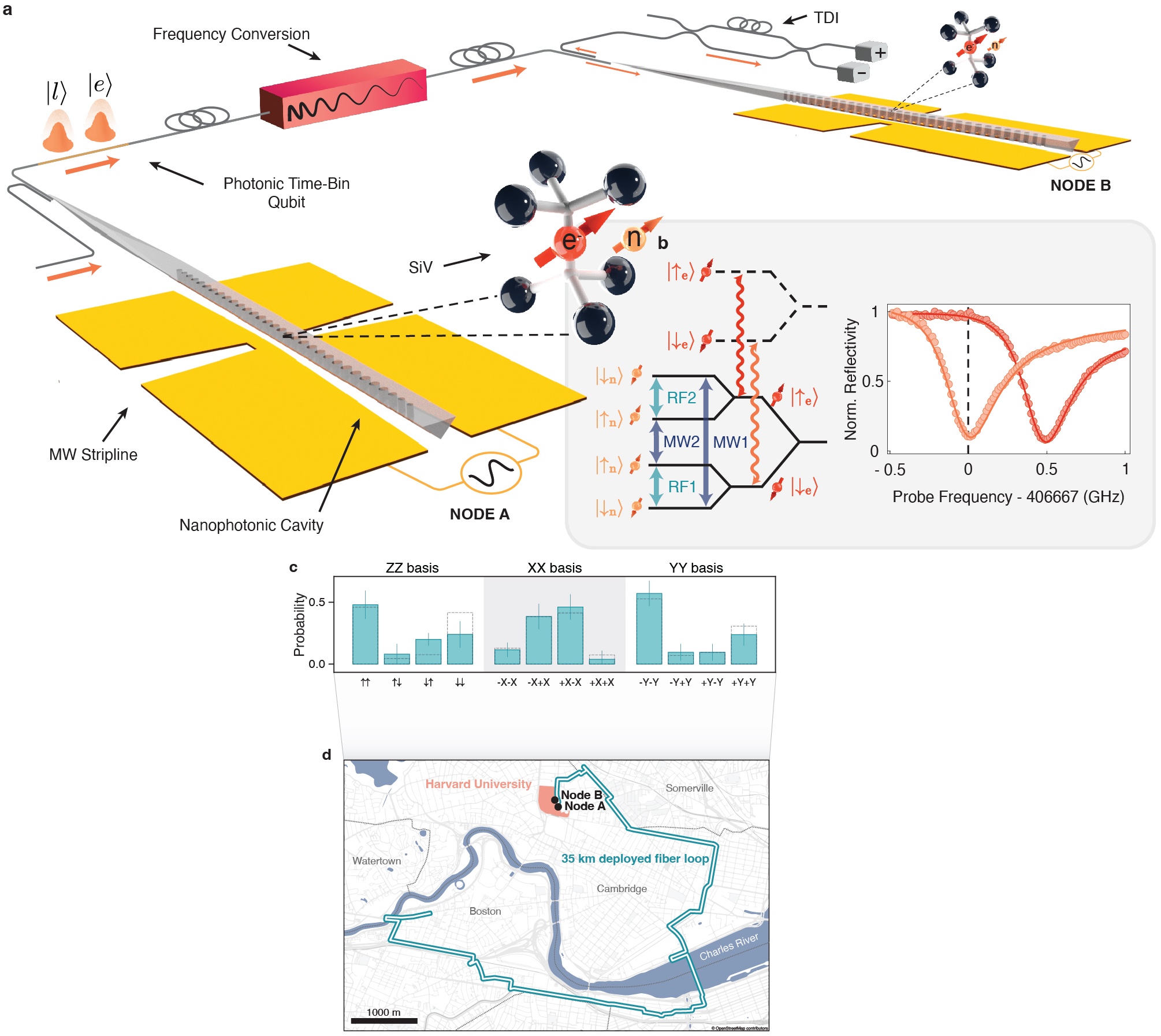
Entanglement of nanophotonic quantum memory nodes in a telecom network.
We distributed entanglement between two separate nodes of a quantum network at a rate of up to 1.4 Hz with over 80% fidelity. We demonstrated over 1 second of coherence time for entanglement between Si29 nuclear spins and successfully distributed entanglement over 35 km of deployed telecom fiber in the Boston area. Nature
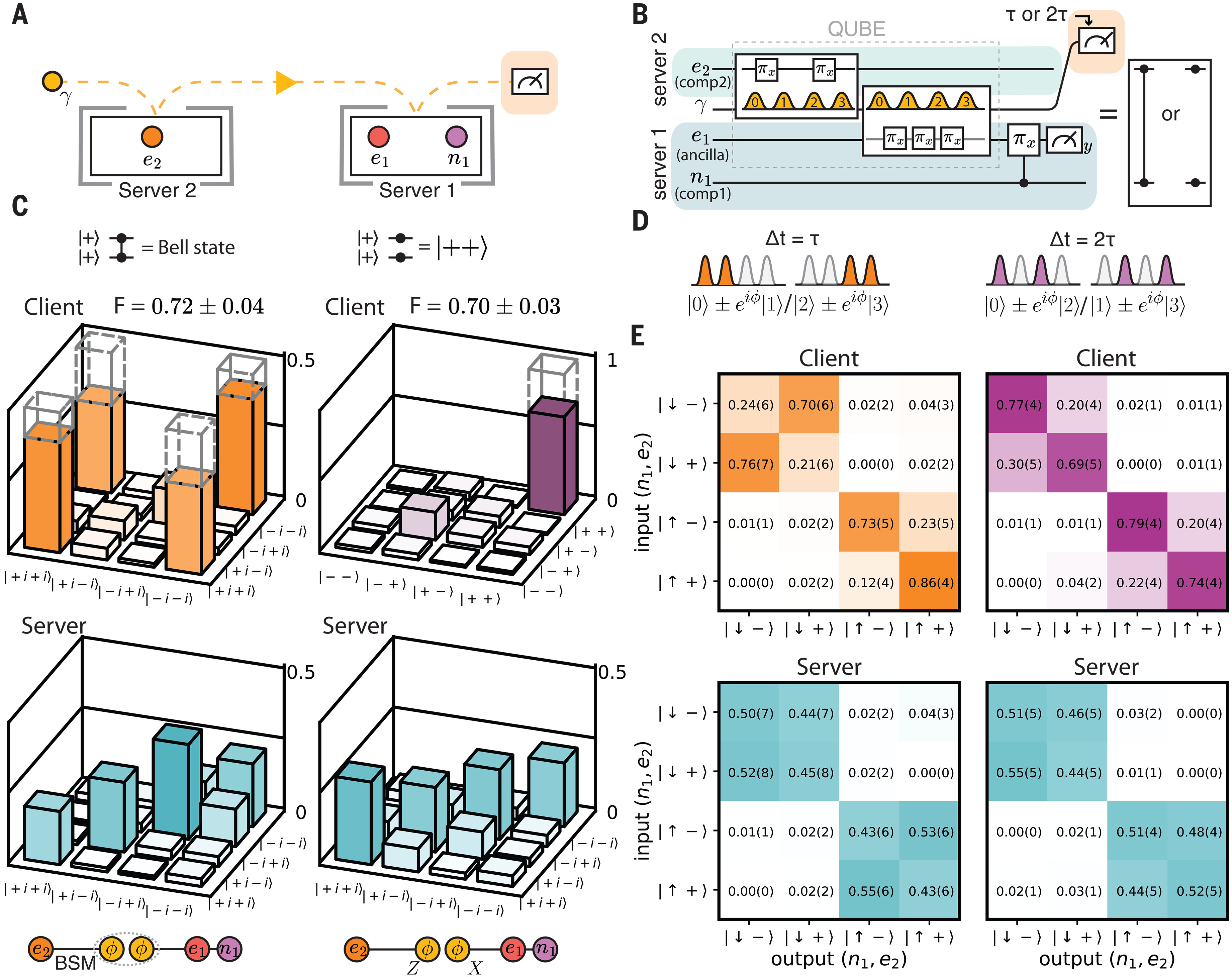
Universal distributed blind quantum computing with solid-state qubits.
Blind quantum computing is a promising application of distributed quantum systems, in which a client can perform computations on a remote server without revealing any details of the applied circuit. Using silicon-vacancy (SiV) centers in nanophotonic diamond cavities with an efficient optical interface, we demonstrated a universal quantum gate set consisting of single- and two-qubit blind gates over a distributed two-node network. Using these ingredients, we performed a distributed algorithm with blind operations across our network. Science
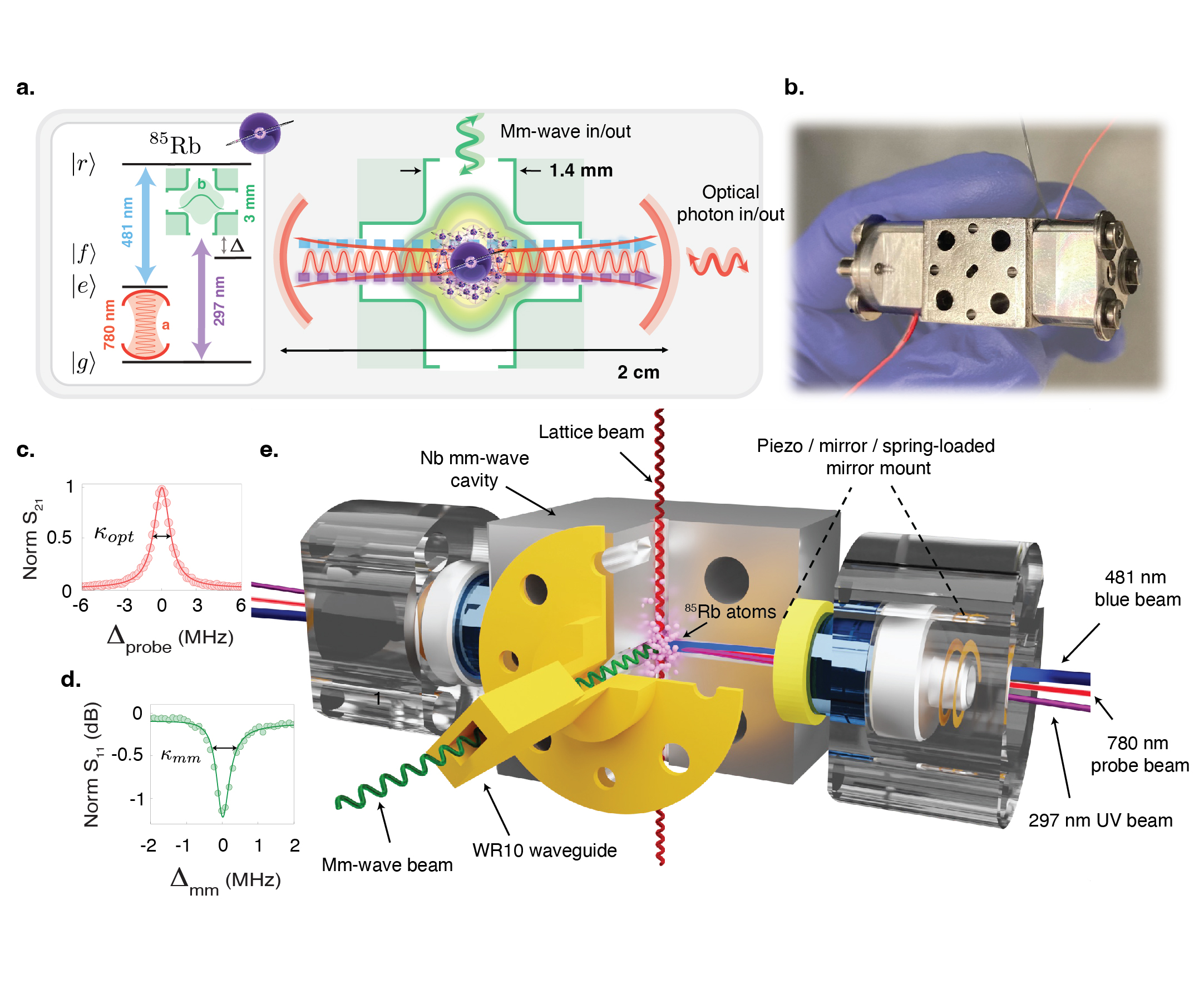
Quantum-enabled millimeter wave to optical transduction using neutral atoms.
Here, we present a new hybrid quantum platform for interfacing single optical and mm-wave photons using Rydberg atoms as mediators. Using our system we demonstrate quantum-limited transduction between optical and mm-wave photons with internal efficiency of 58% and with less than 1 photon of added noise. Nature
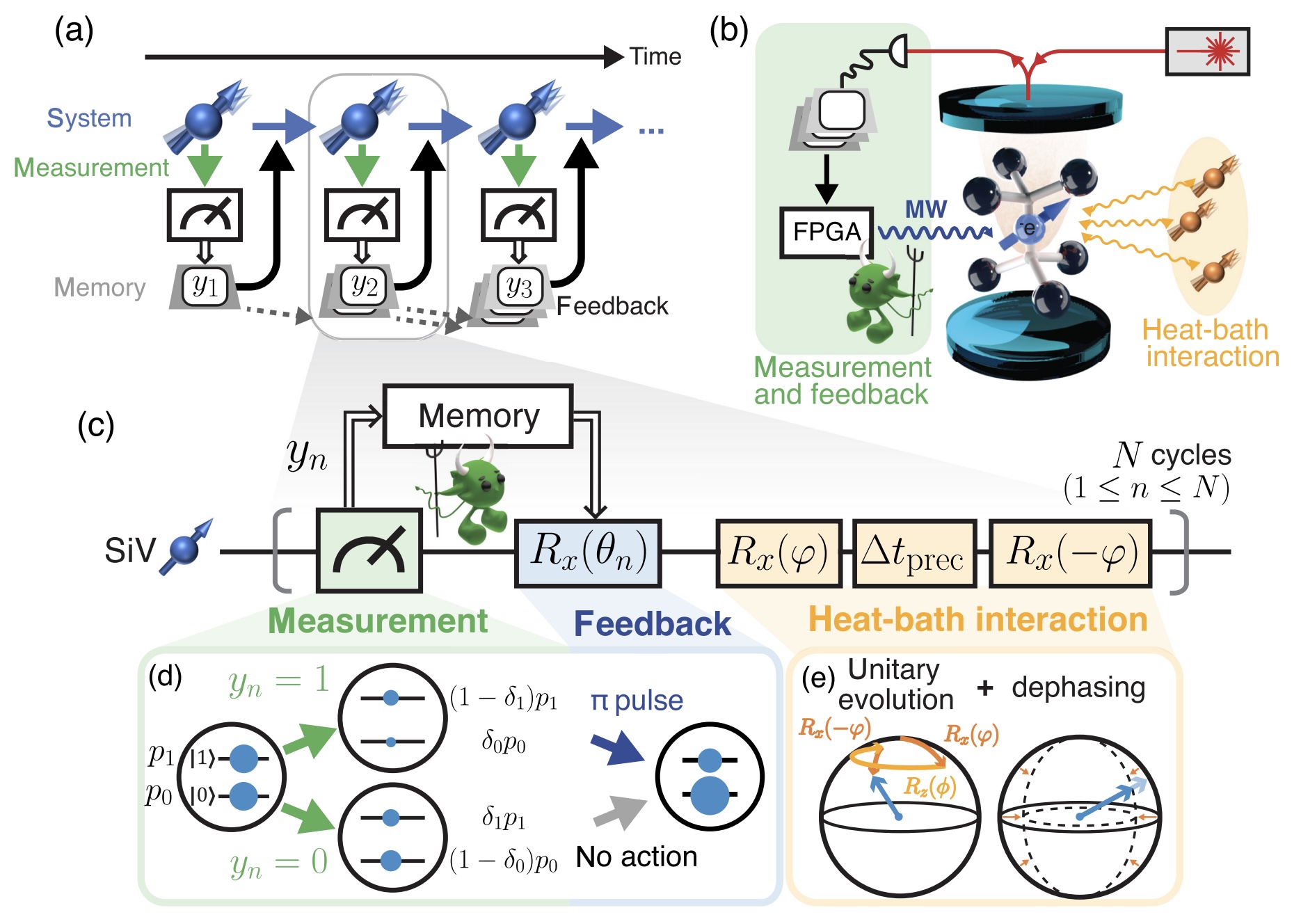
Experimentally Probing Entropy Reduction via Iterative Quantum Information Transfer.
We experimentally probe entropy reduction in a solid-state quantum system by performing iterative measurement and feedback on a silicon-vacancy spin qubit coupled to a diamond nanocavity. Our platform allows us to validate generalized forms of the second law and fluctuation theorem that incorporate quantum information flow. By comparing Markovian and non-Markovian feedback protocols, we demonstrate how memory enhances accessible information and entropy reduction, extending quantum thermodynamics to explicitly include causal feedback structures. PRX
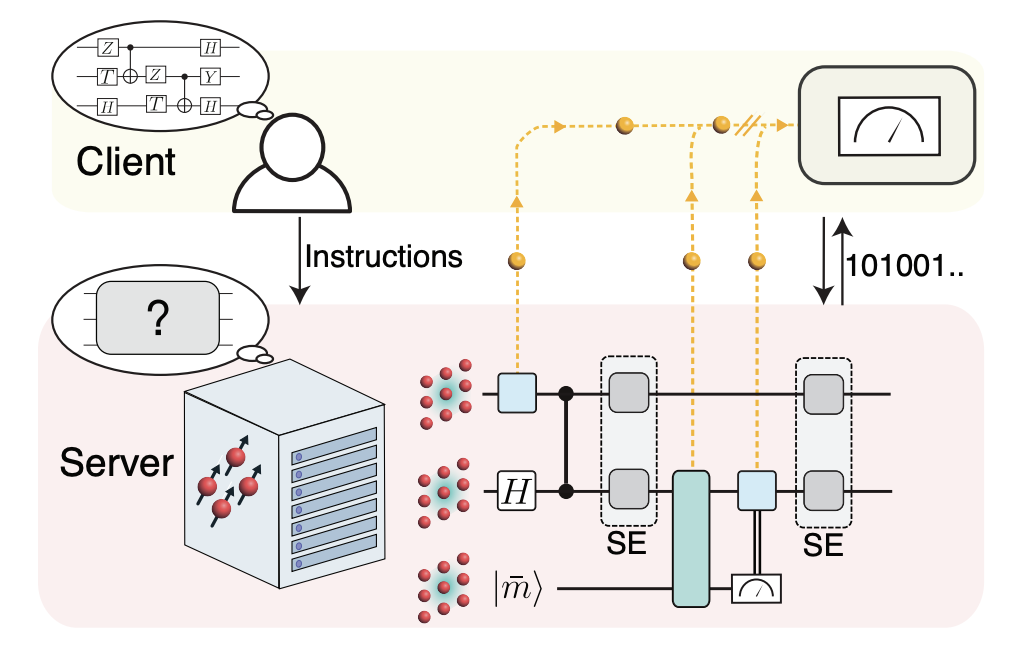
Designing Fault-Tolerant Blind Quantum Computation.
We use a recently demonstrated hybrid light-matter approach to develop an architecture for scalable fault-tolerant blind quantum computation. By combining high-fidelity local gates on the server's matter qubits with delegated blind rotations using photons, we construct loss-tolerant delegated gates that enable efficient algorithm compilation strategies and a scalable approach for fault-tolerant blind logical algorithms. Finally, we outline how this architecture can be implemented on state-of-the-art quantum hardware, including neutral atom arrays and solid-state spin defects. These new capabilities open up new opportunities for deep circuit blind quantum computing. Arxiv
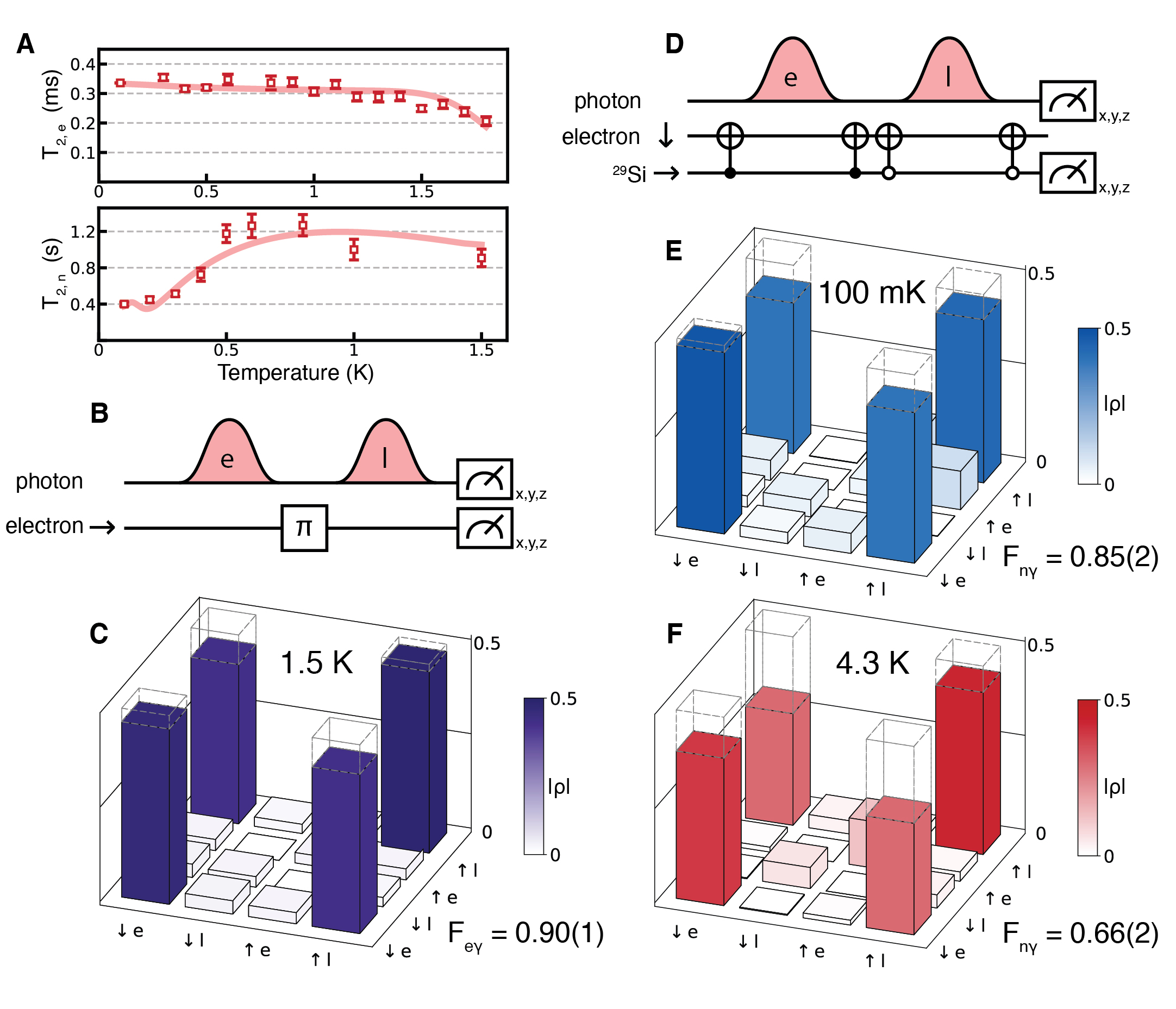
Robust multi-qubit quantum network node with integrated error detection.
Our platform is based on Silicon Vacancy (SiV) defects in diamond nanophotonic cavities. Each cavity contains a single SiV with two qubits: electron spin, used as a communication qubit, and nuclear spin, used as a memory qubit. We demonstrate spin-photon entanglement with both electron and nuclear spins, as well as higher temperature operation for SiVs under high-strain conditions. Science
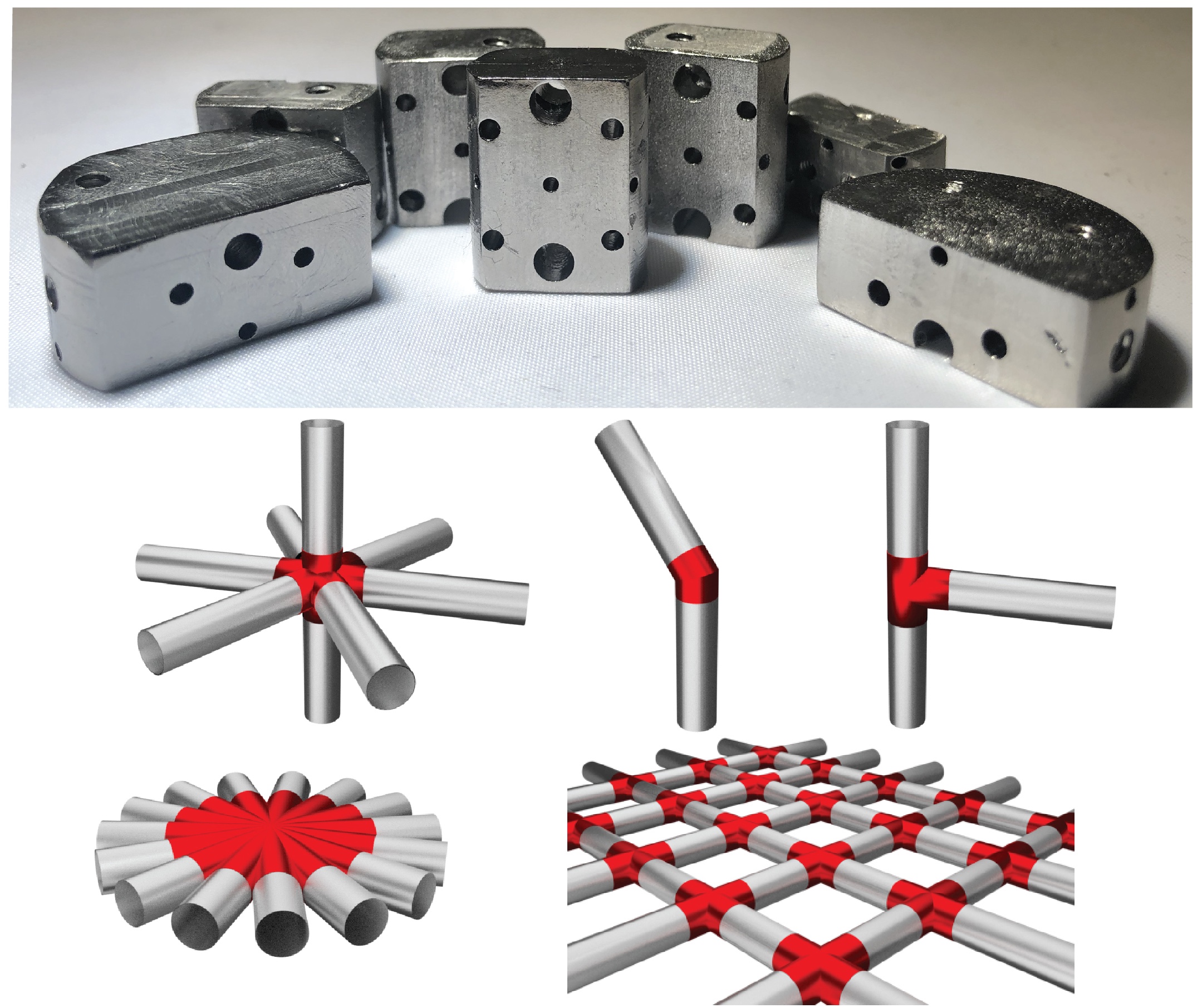
A tunable high-Q millimeter wave cavity for hybrid circuit and cavity QED experiments.
We demonstrated a high-Q 3D seamless superconducting cavity compatible with hybrid quantum experiments that require optical access, such as Rydberg atoms, trapped molecules, and hybrid superconducting circuits. APL
The latest news from our lab.
News
-
26 February 2026
Our paper from our work at Harvard "Entanglement-assisted non-local optical interferometry in a quantum network" has been published in Nature! 🎉 We demonstrate how distributed quantum entanglement and quantum memories can enhance the sensitivity of non-local optical measurements — bridging quantum networks, sensing, and computing in a single experiment. Congratulations to the entire team!

-
February 2026
Aziza has been named the Robert J. Birgeneau Professor of Physics, an endowed chair. Many thanks to Robert J. Birgeneau and to the generosity of the late Ted Geballe.
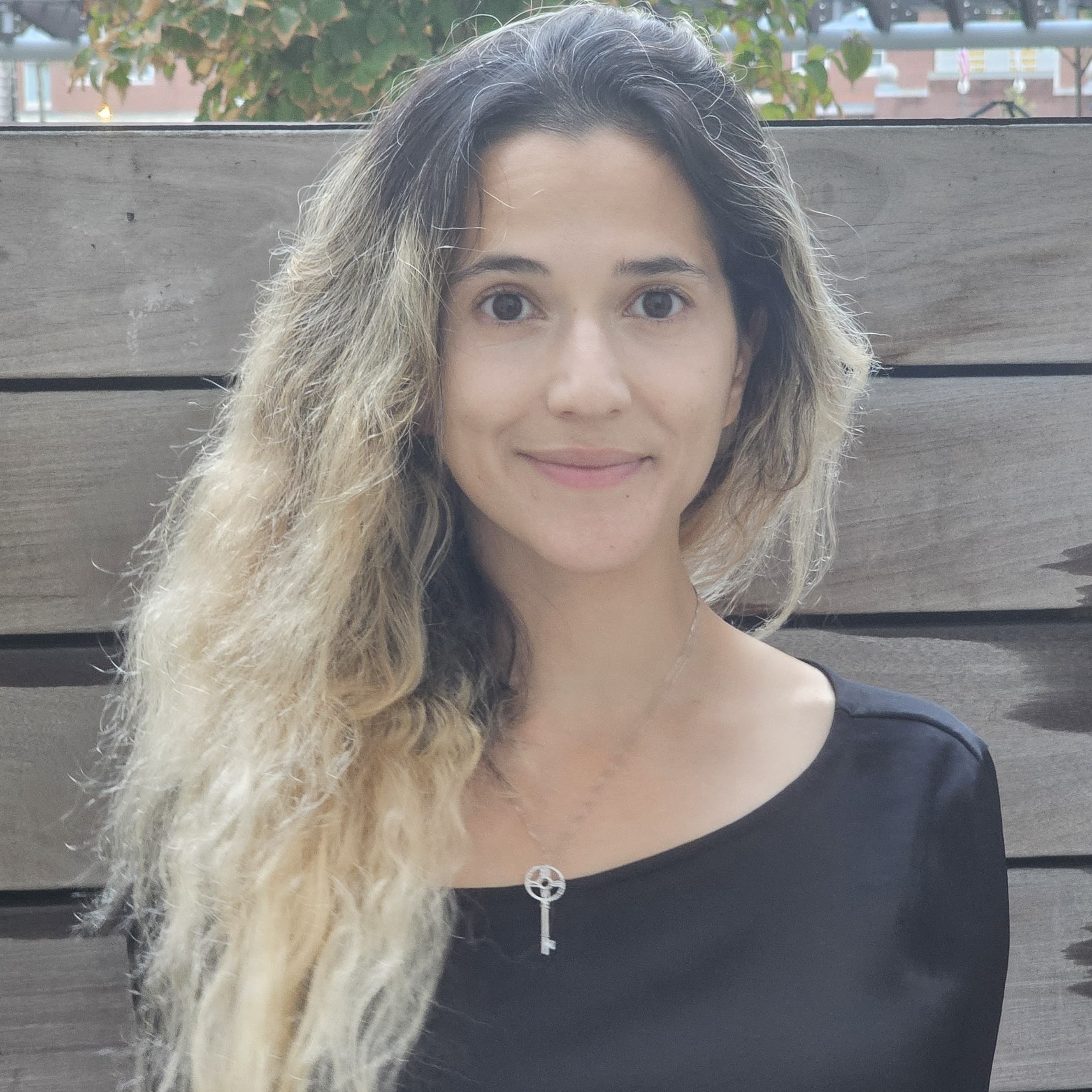
-
November 2025
Luca Sacchi joins Suleymanzade lab as a visitting researcher.
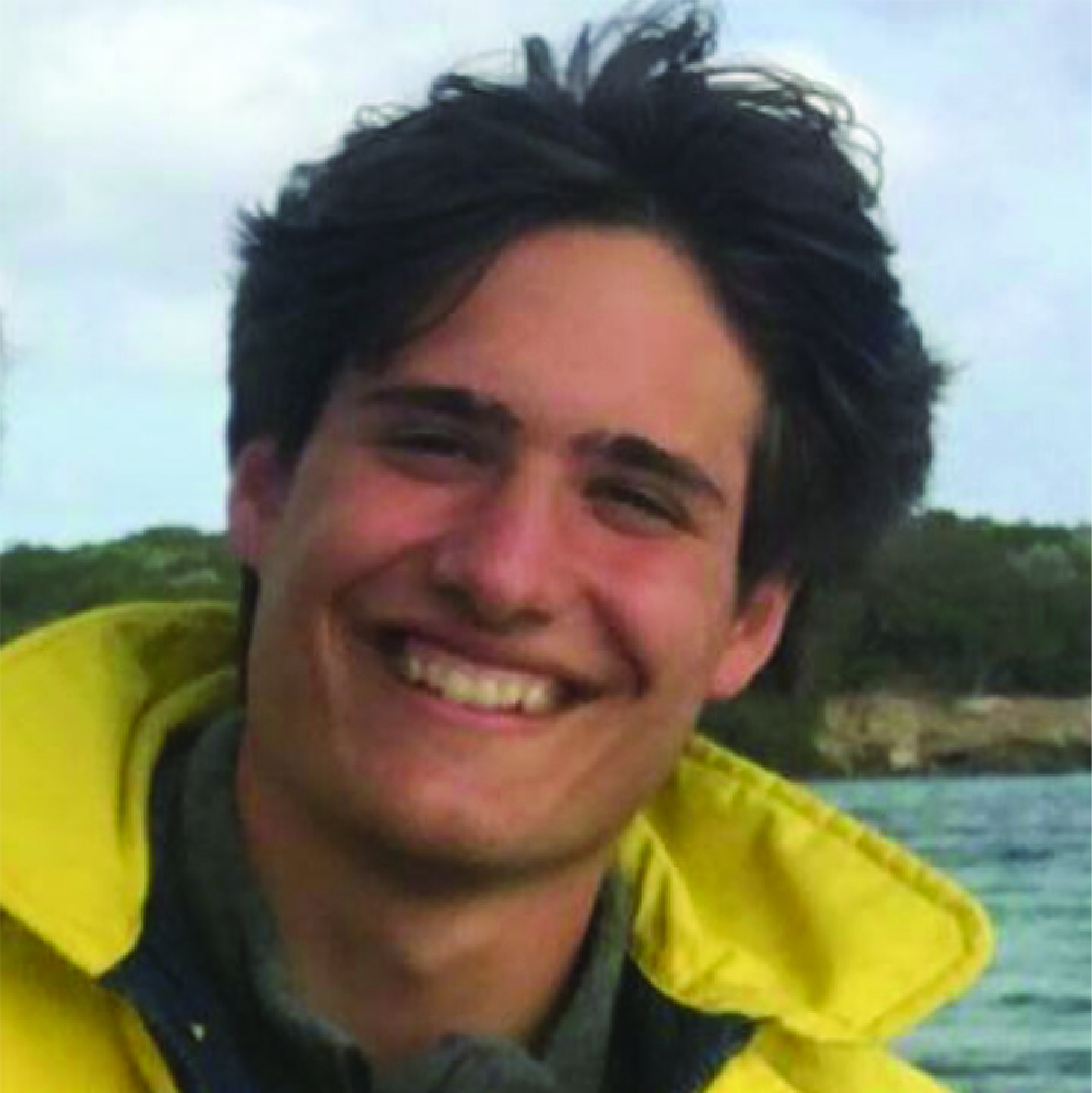
-
Sep 2025
Our work at Harvard in collaboration with the University of Tokyo on Experimentally Probing Entropy Reduction via Iterative Quantum Information Transfer has been published in PRX! Congratulations to both teams!

-
5 September 2025
Yajur Preetham and Jackson Lindstrom join Suleymanzade lab as Undergraduate researchers.
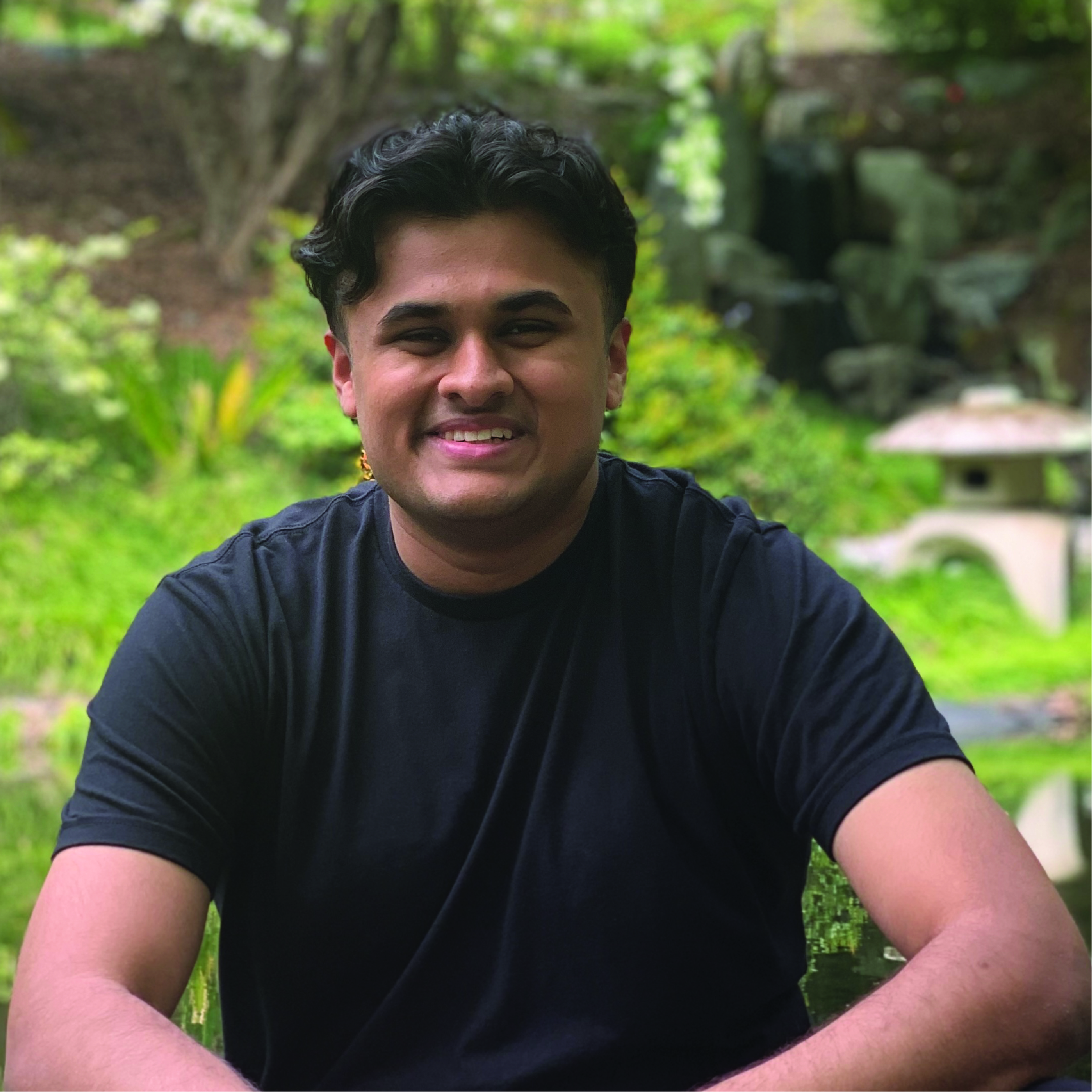

-
20 August 2025
Hana Lampson and Mireya Gonzales-Rivera join Suleymanzade lab as PhD researchers.
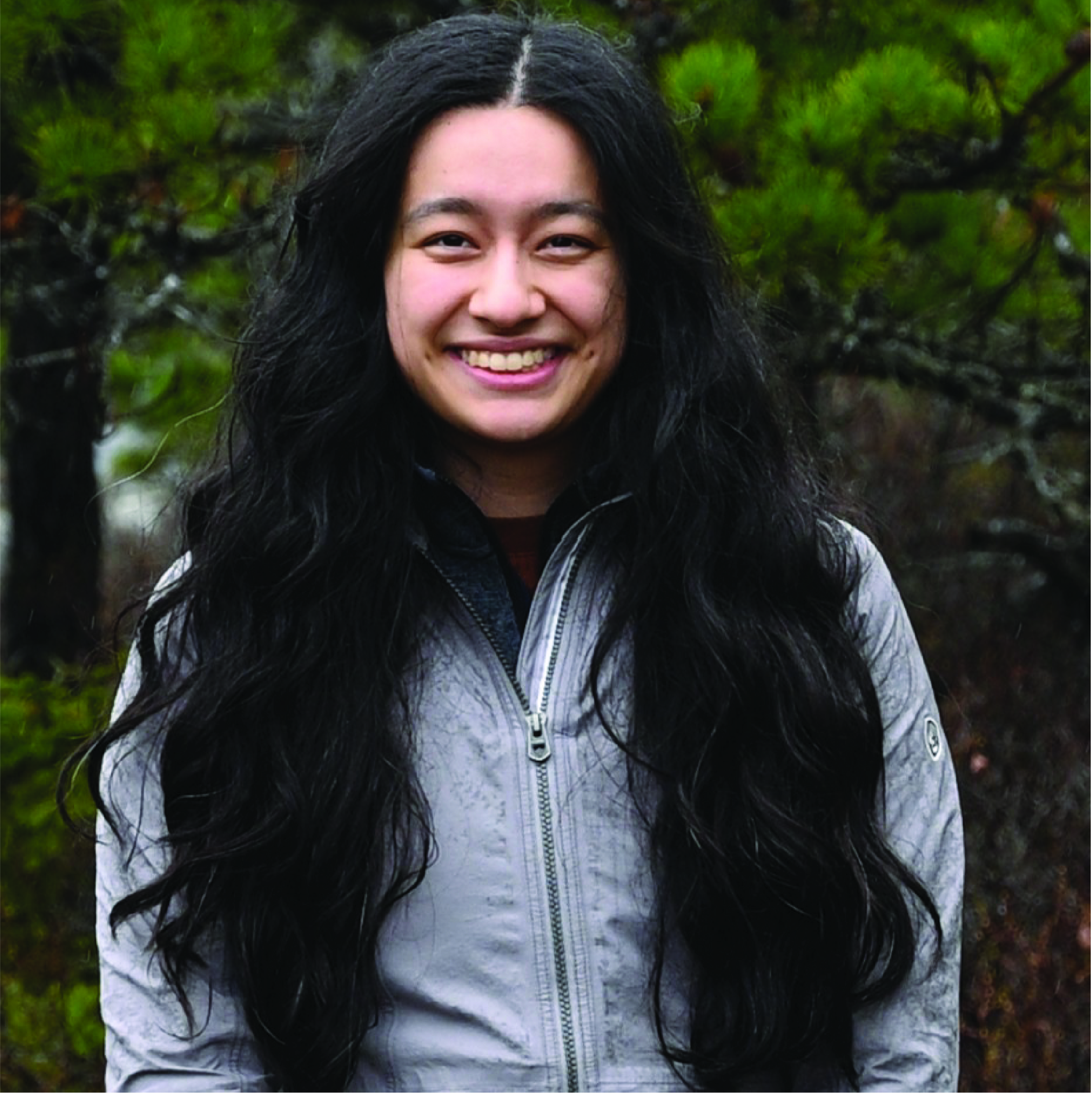
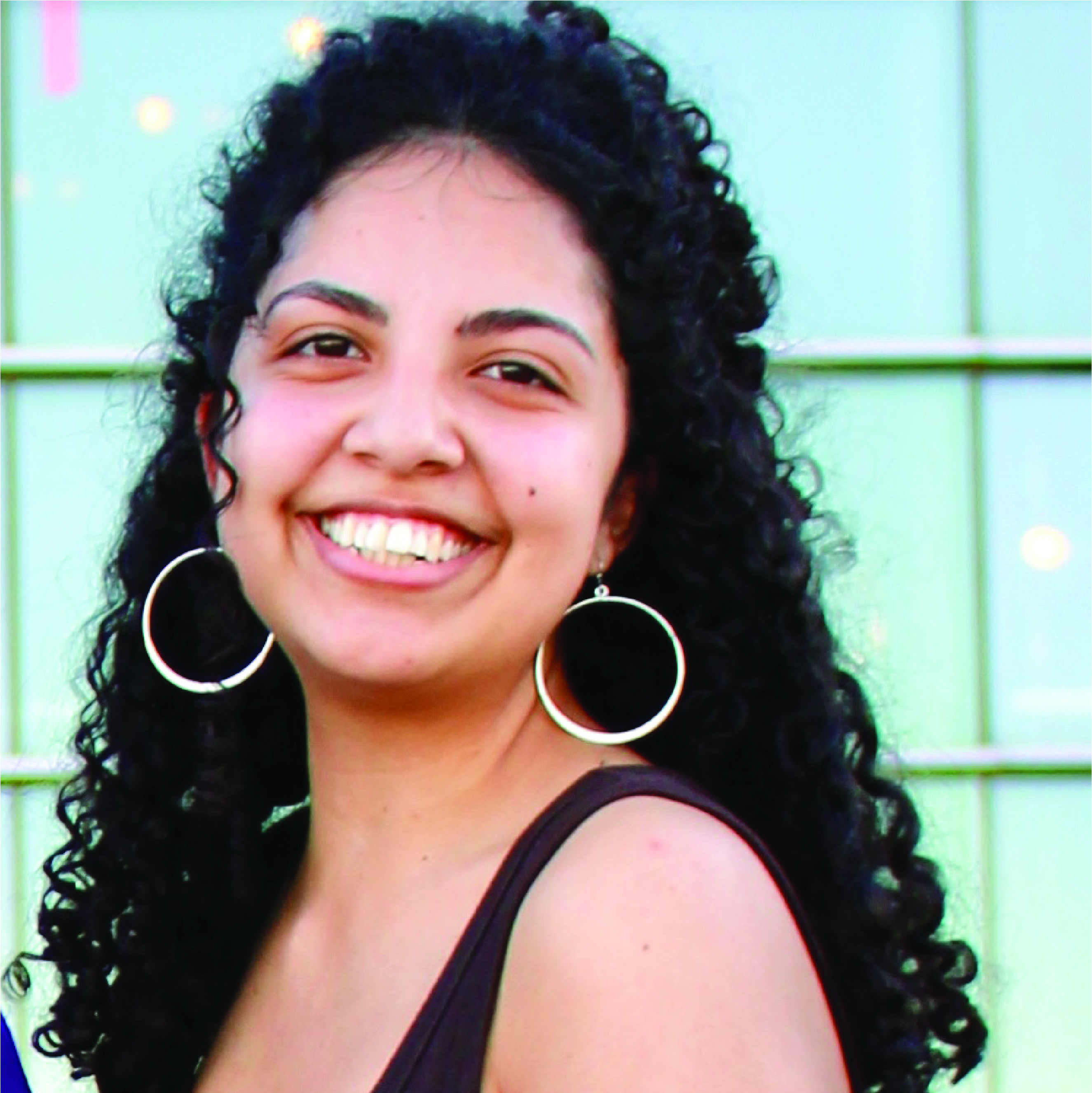
-
01 August 2025
Runjiu Jiang and Victor Vasilevskiy join Suleymanzade lab as Undergraduate researchers.
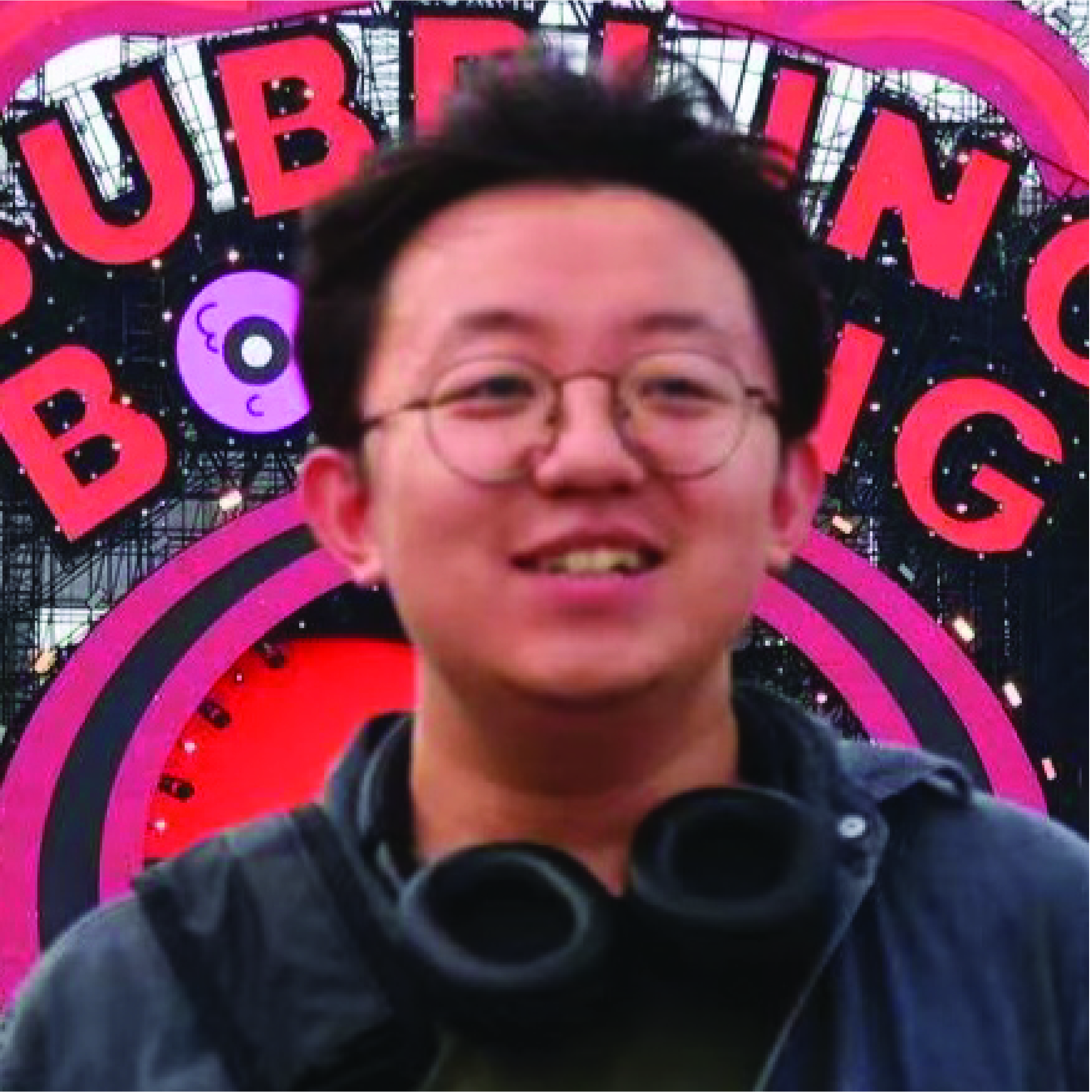

-
17 July 2025
Mireya wins 2025 Mercor Graduate Fellowship 🎉 (selected from 2,000+ applicants)! Huge congratulations to Mireya—and to co‑winner Neil Band (CS PhD in AI, Stanford) as well. Read Mercor Announcement

-
07 July 2025
Yuxuan He joins Suleymanzade lab as an Undergraduate researcher.
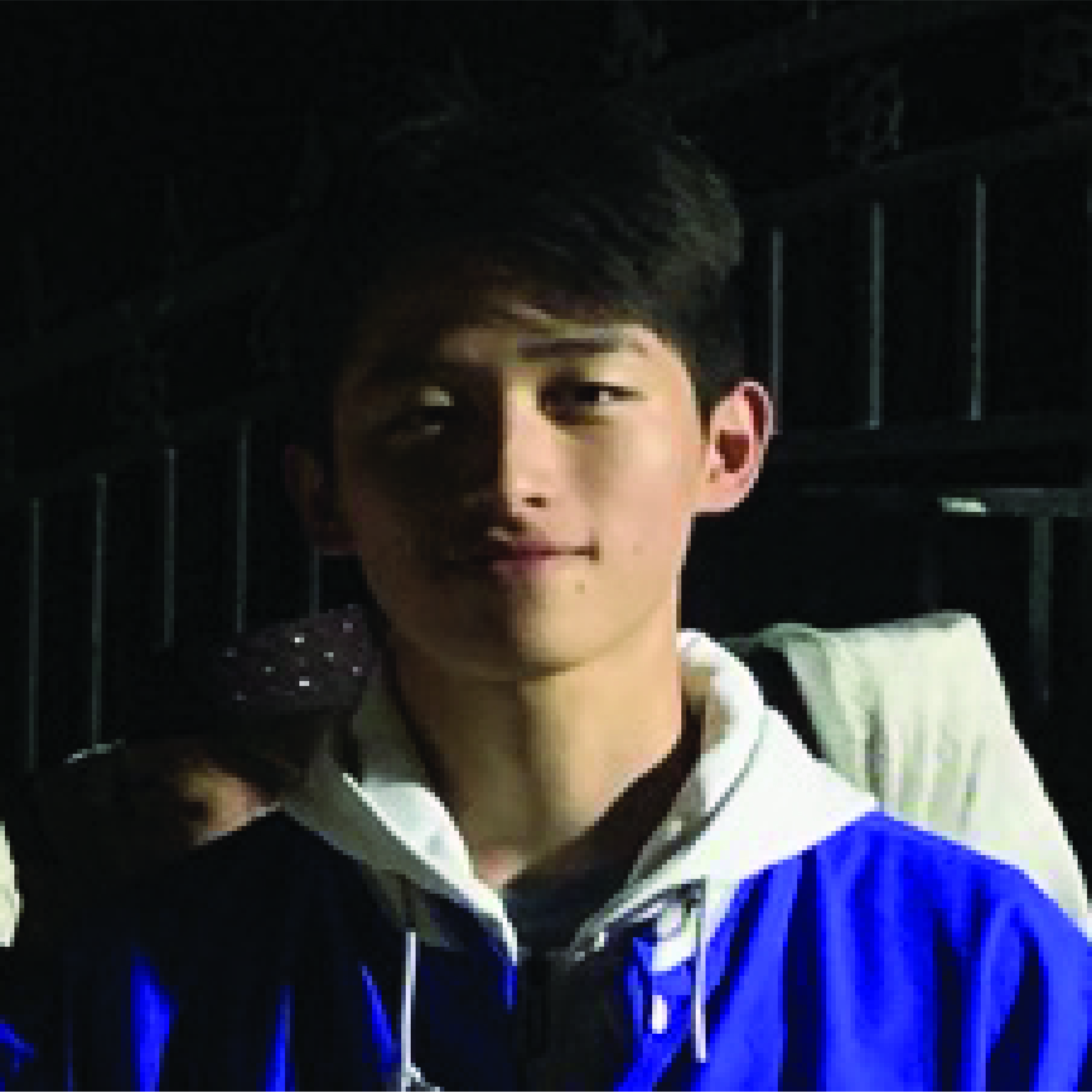
-
01 July 2025
Ankit Muppala joins Suleymanzade lab as an Undergraduate researcher.
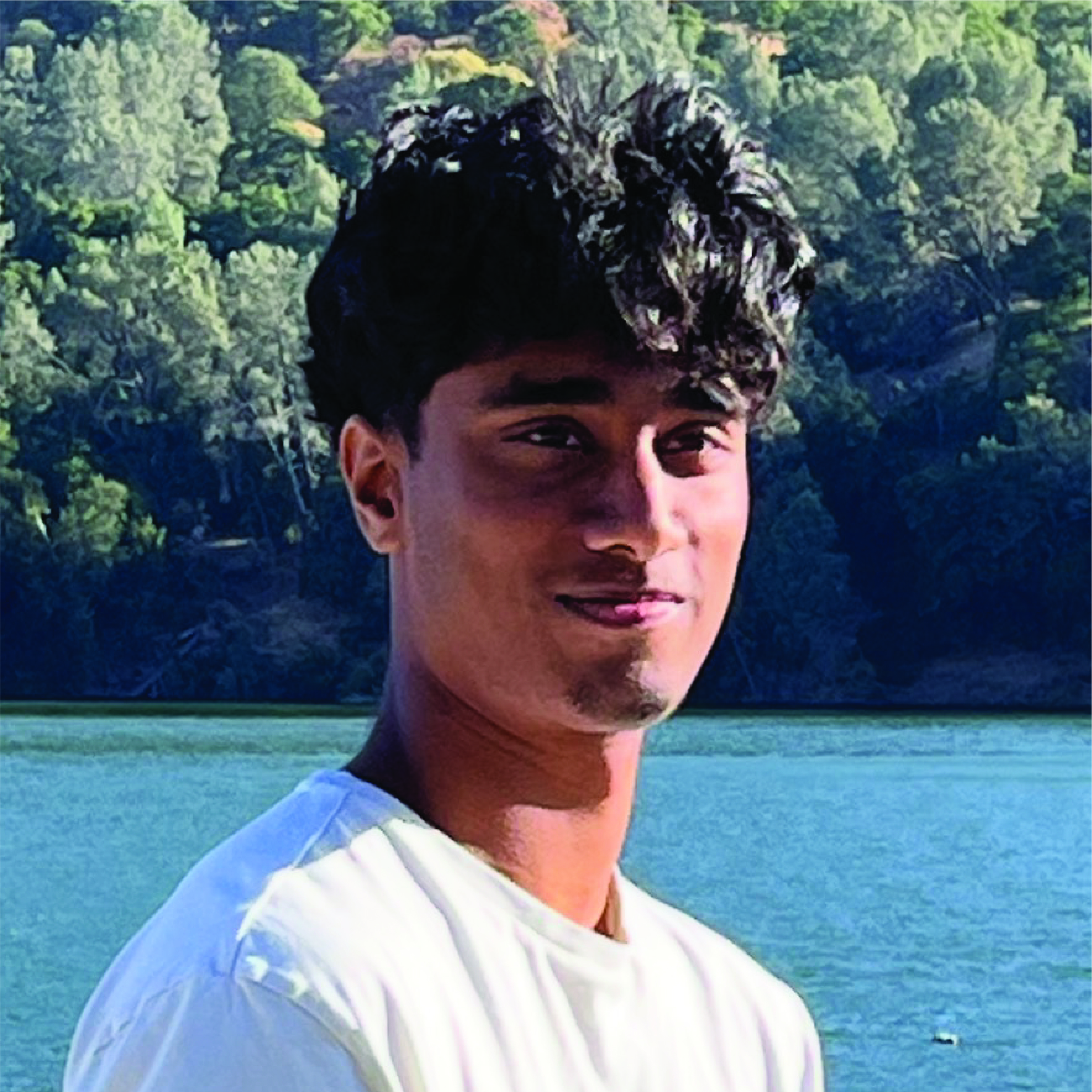
-
June 2025
New preprint! Our theory work at Harvard on "Designing Fault-Tolerant Blind Quantum Computation" is out on Arxiv! Congratulations to the team!
-
May 2025
Our work at Harvard on distributed blind quantum computing across a two-node quantum network has been published in Science! Congratulations to the SiV team!

-
March 2025
We are mentioned in Bluefors blog: "Inspiring the Next Generation: Stories of Women in Physics" together with two amazing scientists in quantum: Prof. Xueyue (Sherry) Zhang from Columbia and Prof. Eve Vavagiakis from Duke University. Read the entire story

-
November 2024
Aziza receives 2024 Boeing Quantum Creators Prize for her work on quantum networking with neutral atoms, solid-state defects and photons. Read the entire story
-
October 2024
The planning of the labs begins with the floorplans, layout, and performance requirements—HVAC, power, vibrations, magnetic fields, and more. It's an exciting and critical part of the process.
-
02 September 2024
UC Berkeley hires four new faculty members in experimental quantum physics. What an exciting time to do Quantum research at Berkeley! Read the entire story
-
01 September 2024
It is official: Suleymanzade Lab will be starting up in the Physics Department at UC Berkeley in July 2025. `GO BEARS!` We will be dwelling in the basement of Birge Hall, far away from stray light, to protect our precious photons.
